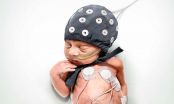(Press-News.org) New UK research has challenged the assumption that people with rheumatoid arthritis always take their medication as prescribed.
Researchers from the Arthritis Research UK Centre for Epidemiology at The University of Manchester found that 40% of patients scored low on an adherence questionnaire at least once during their time in a recent study, indicating that they might not be taking their expensive biological therapies as regularly as prescribed.
Their research is published online in the journal Rheumatology.
The findings have prompted Arthritis Research UK's head of health promotion to encourage people with arthritis to seek out further information and advice so that they are able to better understand the medication they have been prescribed, its positive benefits for their condition and the reasons for taking it as directed.
Belinda Wadsworth said: "Healthcare professionals and other information providers need to find more effective ways to inform their patients about the importance of taking drugs as prescribed for them. People with rheumatoid arthritis need to feel empowered to keep their condition under control by having a better understanding of why their medication is less effective if they don't take it as directed."
The research team found potential reasons to explain patients' behaviour. For example, patients with a positive belief in the need for the drug were more likely to take their medication as were those with fewer concerns about potential side effects. Other important factors included how patients viewed their illness. For example, patients who appreciated the chronic nature of rheumatoid arthritis, those with a better understanding of their disease and those who felt they had high levels of professional or family support were also most likely to take their drugs as prescribed.
Senior author and director of the NIHR Manchester Musculoskeletal Biomedical Research Unit, Professor Ian Bruce said: "This is one of the first studies to assess biological adherence in rheumatoid arthritis patients over time. In the era of new and effective high-cost drugs there is the assumption that people with rheumatoid arthritis regularly take their medication as prescribed, but our findings challenge this assumption.
"We have shown that health professionals should not assume that because biologics are effective and expensive that all patients will take these as prescribed.
"Importantly we have found a number of factors and patient beliefs that help us to understand why this is happening. If we can find ways to inform, support and empower our patients better, we may also be able to improve the regularity of taking these very effective medications in this potentially disabling condition. Such an approach may be extremely cost-effective, reduce the need for further intensive treatments and reduce unnecessary wastage of expensive drugs. "
Rheumatoid arthritis affects around 400,000 people in the UK and is caused by the body's immune system turning on itself, leading to inflammation pain and swelling in the joints and other internal organs.
The development by Arthritis Research-funded scientists of biologic drugs such as anti-TNF therapy, which block the tumour necrosis factor (TNF) pathway in the inflammatory process that causes rheumatoid arthritis has revolutionised treatment worldwide in the past 10-15 years, and transformed the lives of millions of patients.
Three hundred and ninety two rheumatoid arthritis patients on the British Society for Rheumatology Biologics Register, who started in the biological therapy adalimumab between 2007 and 2009, were recruited on to the study. Age, gender, psychological factors, disease activity, physical function and quality of life were also measured at baseline and at six, 12 and 18 months. Adherence was assessed at each follow-up using a patient self-completed questionnaire.
INFORMATION:
The Influence of Behavioural and Psychological Factors on Medication Adherence Over Time in Rheumatoid Arthritis Patients: A Study in the Biologics Era Catharine Morgan, John McBeth, Lis Cordingley, Kath Watson, Kimme L. Hyrich, Deborah P.M. Symmons, Ian N. Bruce is published in Rheumatology online: http://rheumatology.oxfordjournals.org/content/early/2015/05/12/rheumatology.kev105.full?keytype=ref&ijkey=8sIQzzepzhGS3mW
Arthritis Research UK has an extensive range of patient information on rheumatoid arthritis and other types of arthritis and musculoskeletal conditions on its website at http://www.arthritisresearchuk.org
Cough treatments could change dramatically after the herpes virus helped researchers discover that the respiratory tract links to two different parts of the nervous system.
A research team led by The University of Queensland's Dr Stuart Mazzone made the important breakthrough after setting out to learn more about the triggers behind excessive coughing.
"Different physical sensations arise from the upper and lower respiratory tracts in people with respiratory diseases," said Dr Mazzone, from the School of Biomedical Sciences.
"The irritating sensations from the upper ...
Polymer solar cells are a hot area of research due to both their strong future potential and the significant challenges they pose. It is believed that thanks to lower production costs, they could become a viable alternative to conventional solar cells with silicon substrates when they achieve a power conversion efficiency--a measure that indicates how much electricity they can generate from a given amount of sunlight--of between 10 and 15 percent. Now, using carefully designed materials and an "inverted" architecture, a team of scientists has achieved efficiency of 10 percent, ...
Giant strides have been taken in the early care of very premature infants in postnatal intensive care units during the past two decades. Doctors can now support the function of especially the lungs, heart and the circulatory system so as to guarantee the survival of most of even extremely premature infants.
Despite a good start, many of these may still have lifelong problems with brain function, such as attention deficit disorders or difficulty with visual function. For this reason, the primary focus of developing care for premature infants has been on securing brain ...
HANOVER, N.H. - If you're a college student wondering how your study and party habits will affect your GPA, wonder no longer. Dartmouth researchers and their colleagues have built the first app that automatically predicts college students' grade point average based on their smartphone data.
The findings offer new ways to improve students' performance, providing real-time feedback on their studying, partying, sleeping, exercising and other conscious and unconscious behaviors to help them stay on track academically.
Dartmouth computer science Professor Andrew Campbell, ...
BLOOMINGTON, Ind. -- Air pollution regulations issued by the U.S. Environmental Protection Agency are estimated to save thousands of lives annually. A new study by researchers at Indiana University says these estimates are more uncertain than commonly believed.
Researchers Kerry Krutilla, David H. Good and John D. Graham of the IU School of Public and Environmental Affairs analyzed the costs and expected lifesavings of nine regulations issued between 2011 and 2013. The bulk of these regulations require national emissions standards for hazardous air pollutants. The analysis ...
PITTSBURGH, May 26, 2015 - Researchers at the University of Pittsburgh School of Medicine have identified two new classes of RNAs that are closely associated with a protein known to be a prognostic biomarker for breast cancer and could play a role in progression of prostate cancer. Their findings were published in the June issue of the scientific journal RNA.
Levels of human Y-box binding protein 1 (YB-1), which is involved in many cellular functions, have been shown to correlate with drug resistance and poor patient outcomes in a variety of cancers. The observation that ...
When Walt Disney created Mickey Mouse, he didn't give much thought to how he might bring his character to life in the real world. But robotics now puts that possibility within reach, so Disney researchers have found a way for a robot to mimic an animated character's walk.
Beginning with an animation of a diminutive, peanut-shaped character that walks with a rolling, somewhat bow-legged gait, Katsu Yamane and his team at Disney Research Pittsburgh analyzed the character's motion to design a robotic frame that could duplicate the walking motion using 3D-printed links and ...
College Park, Md and Annapolis, Md -- A new study from researchers at the University of Maryland (UMD) and the National Socio-Environmental Synthesis Center (SESYNC) demonstrates that the highly contentious debate on climate change is fueled in part by how information flows throughout policy networks.
The UMD and SESYNC researchers found that "echo chambers"--social network structures in which individuals with the same viewpoint share information with each other--play a significant role in climate policy communication. The researchers say that echo chambers may help ...
Ask any molecular plant biologist about RNA extractions and you might just open up the floodgates to the woes of troubleshooting. RNA extraction is a notoriously tricky and sensitive lab procedure. New protocols out of the University of Florida are quicker, more effective, and more reliable than previous methods.
"Obtaining pure and intact RNA samples is essential for sequencing the active genes, or the transcriptome, of a plant," explains botanist Ingrid Jordon-Thaden, who developed the protocols.
The protocols are given in bench-ready form with detailed notes and ...
Adam C. Levine, M.D., an emergency medicine physician at Rhode Island Hospital found that the World Health Organization's current weight-based guidelines for assessing malnutrition in children with diarrhea are not as reliable as measuring the child's upper arm circumference. His research was published in the Journal of Nutrition.
Diarrhea is common among children who visit health facilities in developing nations. The traditional measures for determining whether a child is moderately or severely malnourished are based on assessing the child's weight directly. Levine found ...

